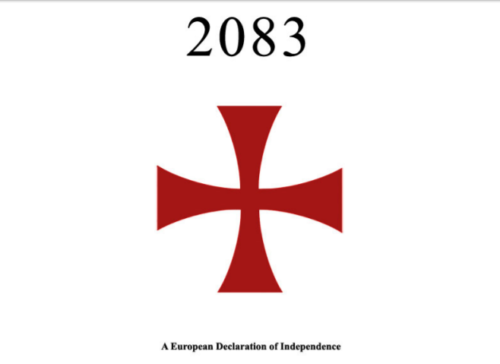
This reading carries on from here.
In this section (pages 1068-1152), Breivik writes about a wide variety of topics, including a proposal for a merit system for the society of knights, how to counter state propaganda, an entreaty to European police forces and an argument for the reinstitution of patriarchy.
Again without apparent irony, Breivik writes that “[The media] deliberately portray us as the anti-thesis of the ideal person so that we achieve a minimum of impact when it comes to appealing to the average European.” This is a curious position if it is considered that the average European, being rather civilised, generally finds murderers unappealing.
It’s obvious from reading a document such as this one that a person with Breivik’s mind was clearly capable of carrying out the deeds he was accused of. But it’s hard to know what to make of someone who advises prospective mass killers to “Visit a male salon if possible and apply light makeup” before taking photos of themselves in order to look the best.
Here Breivik gives a very interesting explanation for the phenomenon of the mainstream media describing white mass shooters as “lone wolves” or “mentally unstable”: ultimately, the Establishment wants to avoid having to explain why there is an ideological opposition to the way they are running things, because having to explain this would give that opposition the perception of legitimacy.
This explains why ruling classes of all times and places are so quick to decry their opponents as “mad” – because it delegitimises them.
Yet again, Breivik decries Nazism: “We hate everything Nazi Germany stood for, in fact we view the current EUSSR/Multiculturalist regimes of Western Europe as totalitarian Nazi regimes.” It’s apparent that there will always be people who call him a neo-Nazi, but anyone who has bothered to read this document knows that this isn’t true.
The most difficult thing for most readers of this document to understand will be Breivik’s frequently declared opposition to “all hate-ideologies; communism, cultural Marxism/multiculturalism, Islam and national socialism.” Most people tend to assume that any mass shooter belongs to a hate ideology and will therefore have considerable difficulty putting Breivik in a box.
Also difficult to understand is Breivik’s frank acknowledgement of the success of Islam in honouring those who have martyred themselves for its cause. Perhaps this has occurred out of Breivik’s will to approach the question of nationalism from a military perspective.
When Breivik writes that “It is every Europeans duty to defend their people and country against the ideology of genocide, conquest and destruction known as Islam,” this raises a number of questions. Some of these questions are fair, but many will resist asking them for fear of granting legitimacy to violent nationalist sentiments.
The biggest is this: how do we know that Islam is not an ideology of conquest? Because the only thing stopping more people from following Breivik’s line of reasoning is the pervasive belief that Islam is not an ideology of conquest. If this belief does not accord with reality then it will eventually yield.
This is no trivial point. The fact remains that if a large number of fighting-age men come into your territory with an ideology of conquest then you are literally at war, no matter how much you might deny it or want it not be true. Who decided that these “refugees” came to Europe with a long-term will to peacefully integrate? Who is even qualified to decide such things, and, if no-one really is, how can it have happened?
Certainly if the millions of Muslims who are currently in Europe decide that they don’t want to peacefully integrate – and the experience from everywhere else is that they don’t – then letting them in in such numbers was a catastrophic strategic error from the perspective of European leaders tasked with maintaining the quality of life of their people. It might be a problem that takes a century or more to solve.
Perhaps it’s not unreasonable to declare these leaders traitors?
Interestingly, Breivik explicitly mentions in this section the fact that attitudes to Jews make it extremely difficult for European nationalist sentiments to unify around a common goal. On the one hand are neo-Nazis, who consider Jews the enemy; on the other hand are Christian conservatives, who consider the Jews a common ally against Islam.
At the end of this section, Breivik underlines the strength of his identification with Christianity, making the argument that only the Catholic Church can unite and speak for all Europeans and that conservative Christian governments ought to reflect this in their policy.
In all, it’s clear that the Establishment is, and must be, very uncertain about how to respond to someone like Breivik. They appear to have mostly decided to make the subject of him and his ideas taboo (which is, of course, a red rag to those of us at VJM Publishing), but this strategy is doomed to fail because of the increasing pressure brought about by the political trends mentioned in this document.
